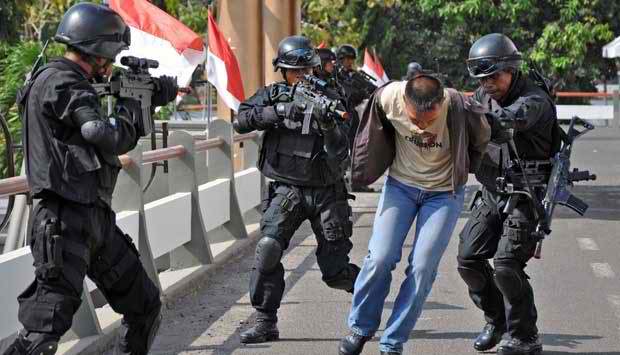
Kaesong Complexities
July 14, 2010
Renewed Violence in Kashmir Provides Window of Opportunity for Militants, Politicians
July 22, 2010Indonesia has received much credit for significant inroads in eradicating terrorism after the 2002 Bali bombings that left 202 people dead. Since then, Jakarta’s elite counter-terrorism police unit, Detachment 88, has netted or killed over 400 militants, while several former ‘deradicalized’ terrorists have actually cooperated with the authorities to capture their former comrades. Though several attacks on Western targets have occurred since then, none have been nearly as deadly as Bali.
Yet, Indonesia’s counterterrorism efforts have come under fire in recent months. Detachment 88’s startlingly high kill-to-capture ratio (one suspect killed for every four arrested) and conduct during recent operations have raised human rights concerns, despite claims by Indonesian authorities that they are exercising proper restraint. Indonesia’s much vaunted ‘deradicalization program’ has also been criticized for producing repeat offenders. A whopping 14 of those arrested or killed in recent police operations connected with the Jakarta hotel bombings in 2009 and a terrorist cell discovered in Aceh earlier this year had been previously detained or imprisoned. Meanwhile, the twin ills of corruption and weak intelligence-gathering continue to plague Jakarta’s counter-terrorism efforts.
The government recognizes the shortcomings of its approach, and plans to launch a National Board on Antiterrorism later this year to better coordinate efforts. Yet, few are optimistic that it will solve the underlying structural deficiencies in the country’s counter-terrorism efforts. Analysts comment that entrenched problems like corruption and inter-agency rivalries will likely “continue to persist†despite this cosmetic change.
Despite this, there are several concrete ways through which Jakarta can overcome some of these challenges. Internal reviews and officer training should be conducted in order to increase the likelihood that militants can be captured alive in the future, so they can provide the intelligence necessary to weed out terrorist networks. Existing detention laws must be enforced and corruption must be stemmed so that inmates cannot engage in radicalization via technology or prison study groups. Furthermore, if the National Board is to be effective, the government must empower it in a transparent fashion by allocating an operational budget, involving the National Commission for Human Rights and other NGOs, and allowing auditing by several agencies for corruption.
Efforts to revise the current anti-terrorism law to facilitate counter-terrorism must also be done in a way that respects basic human rights. Indonesia’s top counter-terrorism chief Ansyaad Mbai ruffled feathers last year when he lamented that terrorists flocked to Jakarta because the country’s laws were not as substantial as its neighbors like Malaysia, which permit extended detention without trial. Yet adopting such an approach risks undermining the democratic traditions of the Indonesian state, which is exactly what the terrorists aspire to in the first place.




